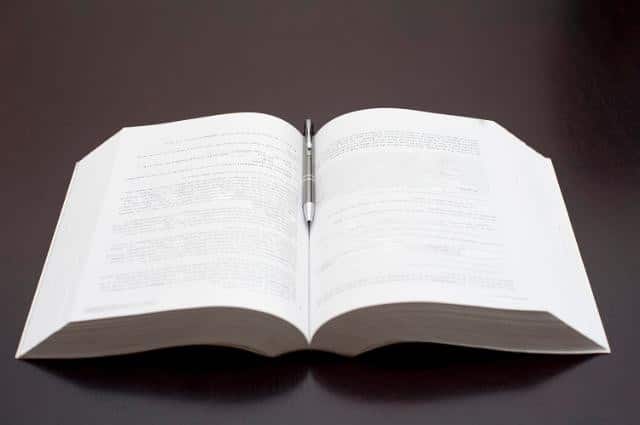
Academic Proofreading: So you’ve decided that you need to get your work proofread. Good, you’ve made the right decision. Even professional authors need proofreading – that’s why academic publishers employ their own proofreaders. Everyone makes typos or misplaces commas, and sometimes a fresh set of eyes is necessary to spot all of the errors.
For academic proofreading, however, it’s important that your proofreader is more than a fresh set of eyes: it’s important that you have your work proofread by a subject specialist, by someone who knows your field and is expert in it.
The reason for this is simple: academia is hard. Language in academia doesn’t always work exactly as it does in the rest of the world, and often language in different subjects within academia doesn’t work the same. Academics love to take words and make them mean different things in different contexts.
For example, the French philosopher Jacques Derrida coined the word différance, a deliberate misspelling of différence, playing on the fact that the French verb différer can mean ‘to defer’ and ‘to differ’. The whole thing is sort of an oblique pun, and not particularly funny. (For those with an interest in philosophy of language: the coinage of différance is a kind of meta-joke about the need to constantly create new words to refer to specific meanings. These words then themselves slip from meaning – because Derrida doesn’t believe that language can hold specific meanings, because he is difficult like that – so a new word needs to be created, and the whole process is one of endless deferral. Hence the Francophone pun on defer/differ.) The important thing to take from this otherwise obscure example is that to any proofreader who isn’t a subject specialist and isn’t expert in the philosophy of language, différance will look like an error – and a common error at that – rather than a technical term. So this proofreader is likely to correct the technical term to the vernacular one, which, of course, won’t be a correction at all.
What the différance/différence example makes obvious is that having academic proofreading done by someone who isn’t a subject specialist can be dangerous, not just in the philosophy of language, but in any academic discipline which uses unusual and technical language, which is pretty much all of them.
What’s more, examiners will often be judging papers precisely on their ability to use this difficult and obscure language, because one of the primary purposes of most student assessments is to give students the opportunity to show that they understand their subject, and that they can present this understanding as if they were themselves an academic. Students are required to show that they can do the kinds of things that academics do in journal papers, like reference properly, and write formally, and use the technical language correctly. So, given that it is a primary assessment criteria, it is imperative that students produce work that demonstrates their ability to use this vocabulary correctly and fluently. The kind of academic proofreading that is sympathetic to this need can only be undertaken by someone who is themselves fluent in the vocabulary – in short, by a subject specialist.
Luckily for you, Oxbridge Proofreading® only use subject specialists for all our academic proofreading. This means that the kind of mistakes that a generalist might make will not occur, and that your work will be returned to you both error free and technically perfect.
Our Academic Proofreading Reviews
Please Click to see what our existing clients think of our proofreading and editing services.